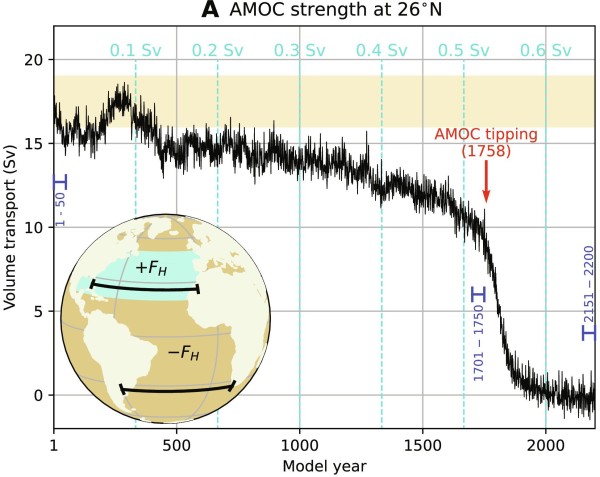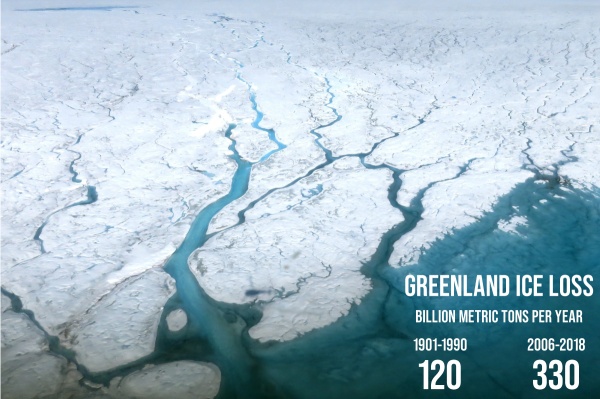The Atlantic Meridional Overturning Circulation (AMOC) transports warm and salty upper ocean water to the subpolar North Atlantic where the upper ocean releases some heat to the atmosphere. Due to the surface cooling and the high salinity (i.e., salty), the upper ocean water becomes heavier and thus sinks down to the deep ocean and then... Continue Reading →
Useful editing tips from climate science editor
Michael White is a climate science editor for Nature. He posted on Twitter a list of useful tips for climate scientists to consider before they submit their work to Nature or other journals. Personally, I would like to stress his suggestion to avoid subjective wording like “unprecedented”, “dramatic”, and “remarkable”. Such a subjective word gives... Continue Reading →
3 most memorable reviews … so far
Throughout my career, I have published many scientific papers and reviewed even more papers. So, I have received or encountered many interesting reviews. Here are the 3 most memorable comments that I have received so far. #3) "The paper is very poorly written, lacks objective detail, and makes fatal flaw assumptions about the role of... Continue Reading →
Your suggestion “rejected” in a shared online document?
Online document-sharing service has revolutionized the way scientists share documents and interact with collaborators. Google Docs is probably the most widely used online document-sharing service. I use it almost every day for work and to share scientific paper drafts with coauthors. It is very convenient and facilitates collaboration between co-authors. For instance, a co-author can... Continue Reading →
Atlantic deep water is now warm enough to melt previously stable Greenland glacier
Ice sheet melting from Greenland's glaciers accounts for an increasing proportion of global sea level rise, losing ~330 billion tonnes of ice per year during 2006-2018 (compared to ~120 billion tonnes of ice per year during 1901-1990). A new study published in Nature Communications examined recent changes at K.I.V Steenstrups Nordre Bræ (66.53°N, 34.57°W), a... Continue Reading →
The Global Ocean Conveyor Belt is Reshaping from the Southern Ocean
As the surface ocean warms and polar ice sheets melt due to increasing anthropogenic greenhouse gases in the atmosphere, near-surface stratification is increasing almost everywhere, including the major deep water formation regions in the high-latitude North Atlantic and around Antarctica. As a result, the global Meridional Overturning Circulation (MOC), also known as the global ocean... Continue Reading →
Arctic Ocean is experiencing dramatic weight loss due to increasing freshwater storage
The freshwater cycle in the Earth System is a delicate balance between the net loss (i.e., evaporation > precipitation) in the warm tropical-subtropical oceans, the net gain (i.e., precipitation > evaporation) in the cold polar oceans, and the net poleward transport by the atmosphere. These processes maintain the tropical-subtropical oceans salty and the polar oceans... Continue Reading →
Extreme U.S. Great Plains heat waves are linked to East Asian Monsoon
Heat waves are the leading weather‐related cause of death in the U.S. For example, the most recent U.S. extreme heat waves that occurred over the Great Plains in 2011 and 2012 caused 362 deaths. These events are unusual and largely unpredictable beyond the synoptic time scale. However, their number and severity have increased and are projected... Continue Reading →
Antarctic Ice Sheet retreat in the Amundsen Sea driven by central tropical Pacific SST variability
A new study appeared in Nature Geoscience (Jenkins et al., 2018) analyzed ocean temperature, salinity, dissolved-oxygen and current measurements from 2000 to 2016 near the Dotson Ice Shelf in the Amundsen Sea to determine temporal changes in net basal melting. The study showed that a decadal cycle dominates the ocean record, which is highly correlates with... Continue Reading →
Satellite-derived Antarctic ice loss over the past decade is 80% higher than IPCC projections
A short article appeared in Nature Climate Change compared Antarctic ice-sheet mass balance between satellite-derived observations and IPCC-AR5 model-based projections. Satellite-derived observations show that Antarctic ice-sheet has decreased since 1992 contributing around 0.27 mm-per-yr sea level rise. During the last decade (2007-2017), the contribution from Antarctica increased to around 0.55 mm-per-yr . This value is around 30... Continue Reading →







